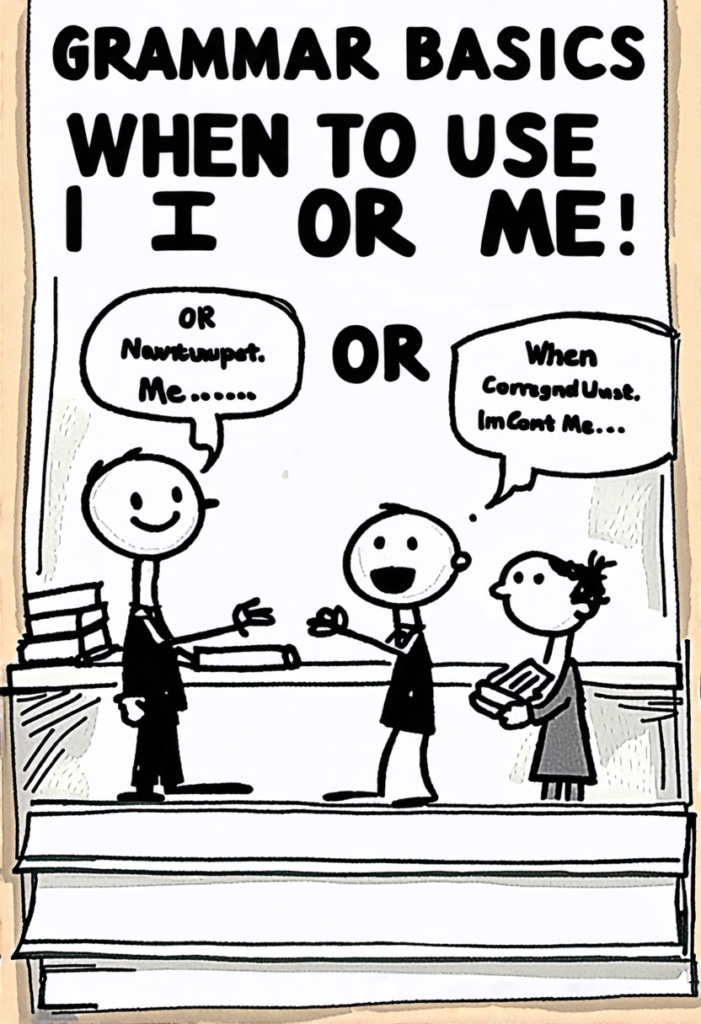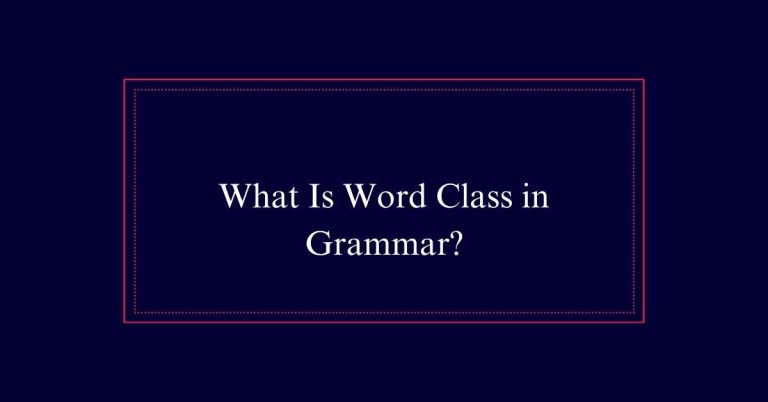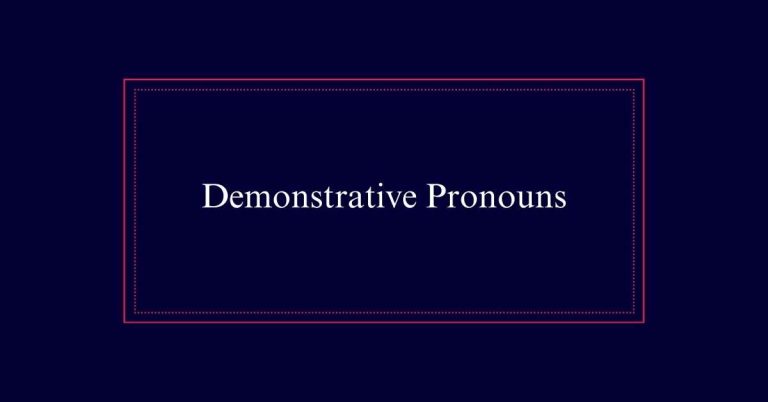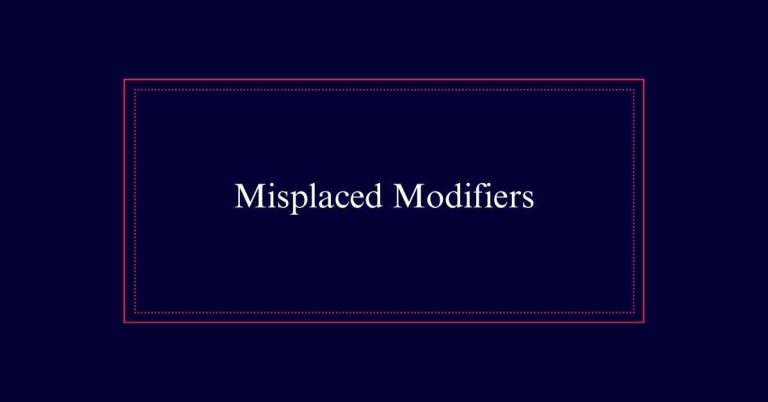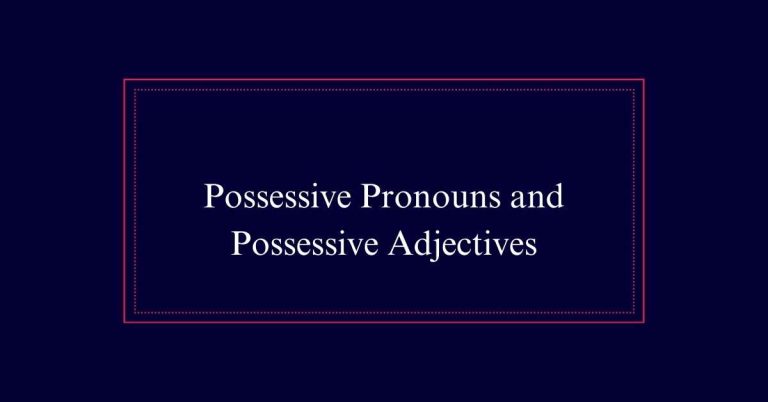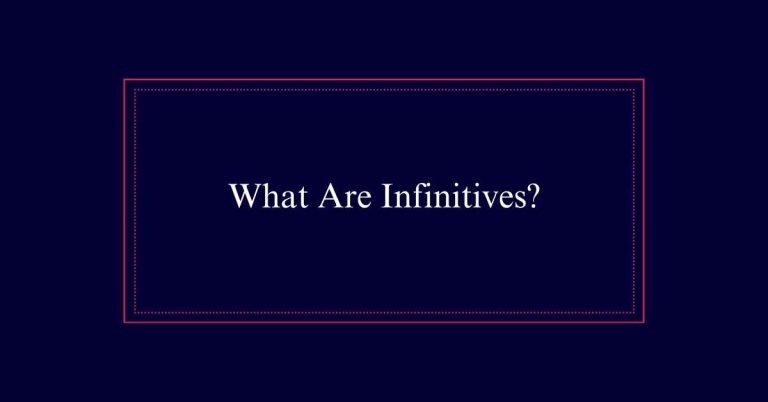When to Use I or Me?
‘I’ and ‘me’ have specific roles in sentences. Use ‘I’ when the pronoun is the subject performing the action, as in ‘I walked to the store.’ Use ‘me’ when the pronoun is the object receiving the action, as in ‘She gave me a gift.’ A helpful tip is to remove the other person in the sentence to see which pronoun fits. For example, ‘She and I went’ versus ‘She and me went’ – removing ‘She’ shows ‘I went’ is correct.
Subjective Vs. Objective Pronouns
Understanding the difference between subjective and objective pronouns is essential for proper grammar. Subjective pronouns are used as the subject of a sentence. Examples include ‘I,’ ‘he,’ ‘she,’ ‘we,’ and ‘they.’
Objective pronouns serve as the object of a verb or a preposition. Examples include ‘me,’ ‘him,’ ‘her,’ ‘us,’ and ‘them.’ For instance, in the sentence ‘He gave it to me,’ ‘me’ is an objective pronoun. Conversely, ‘I gave it to him’ uses ‘I’ as a subjective pronoun.
Recognizing the role pronouns play in a sentence helps in selecting the correct form. This distinction guarantees clarity and grammatical accuracy in writing. Proper use of pronouns reflects professionalism in communication.
Common Mistakes With ‘Me’ and ‘You’
Many people frequently make mistakes when choosing between ‘me’ and ‘you’ in sentences. This confusion often arises because ‘you’ remains the same whether it’s a subject or an object.
For example, in the sentence, ‘He’ll give it to you or I,’ the use of ‘I’ is incorrect. Instead, it should be ‘He’ll give it to you or me.’
To avoid mistakes, try removing the second person pronoun. If ‘He’ll give it to I’ sounds wrong, then ‘He’ll give it to you or I’ is also incorrect.
You and Me’ Vs. ‘You and I
A common grammatical challenge is knowing when to use ‘you and me’ versus ‘you and I.’ The key lies in understanding subjective and objective pronouns.
‘I’ is a subjective pronoun, used as the subject of a sentence. ‘Me’ is an objective pronoun, used as the object. For example, ‘You and I will attend the meeting’ is correct because ‘I’ is the subject.
Conversely, ‘The manager spoke to you and me’ is correct because ‘me’ is the object. To verify, remove the second person. If ‘You and I will attend’ becomes ‘I will attend,’ it remains correct. If ‘The manager spoke to me’ is correct, so is ‘The manager spoke to you and me.’
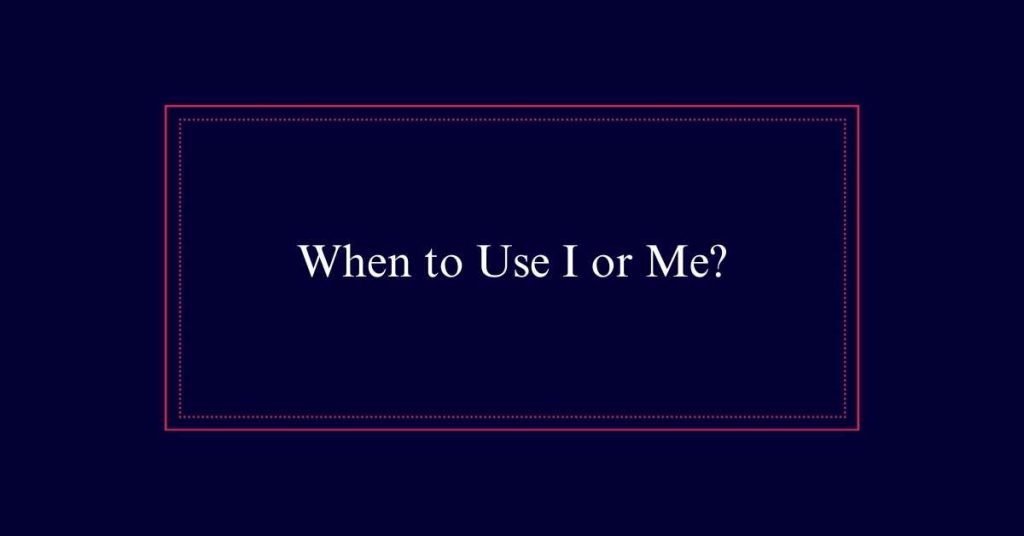
Eliminating the Second Person
To determine the correct pronoun, remove the second person from the sentence. This technique simplifies the decision-making process.
For example, in the sentence ‘She gave the book to you and I,’ eliminate ‘you.’ The sentence becomes ‘She gave the book to I,’ which is clearly incorrect. The correct form is ‘She gave the book to me.’
By following this method, you can confidently choose the right pronoun.
- Simplifies decision-making
- Clarifies sentence structure
- Guarantees grammatical accuracy
- Prevents common mistakes
- Enhances writing clarity
Example Sentences Explained
Understanding example sentences can illustrate the correct usage of ‘I’ and ‘me’ in various contexts. Consider the sentence: ‘John and I went to the store.’ Here, ‘I’ is correct because it is part of the subject.
Conversely, in ‘He gave the book to John and me,’ ‘me’ is correct as it is the object. To check, remove the other person from the sentence. ‘I went to the store’ is correct, while ‘Me went to the store’ is not.
Similarly, ‘He gave the book to me’ is correct, but ‘He gave the book to I’ is incorrect. Using these examples helps clarify when to use each pronoun appropriately.
Contextual Pronoun Choice
Choosing the correct pronoun depends heavily on the sentence’s context and structure. Understanding the role of the pronoun in the sentence helps in making the right choice between ‘I’ and ‘me.’ ‘I’ is used as a subject pronoun, while ‘me’ is used as an object pronoun. The table below illustrates their usage in different contexts:
| Context | Correct Usage |
|---|---|
| Subject of a verb | She and I went. |
| Object of a verb | He called me. |
| Object of a preposition | Between you and me. |
| Part of a compound object | For John and me. |
Impact of Incorrect Usage
Proper use of pronouns is crucial for conveying precise information. It guarantees that the message is understood correctly, reflecting attention to detail and enhancing the overall effectiveness of communication.
Misusing ‘I’ and ‘me’ disrupts the grammatical structure, making the message less professional and harder to understand. This lack of clarity can affect both personal and professional interactions, leading to potential misinterpretations.
When these pronouns are used incorrectly, the meaning of a sentence can become unclear. For example, saying ‘He’ll give it to you and I’ is incorrect and can confuse the reader or listener about the intended recipients.
Incorrect usage of ‘I’ and ‘me’ can lead to misunderstandings in communication.
Frequently Asked Questions
How Do Reflexive Pronouns Like ‘Myself’ Fit Into Grammar Rules?
Reflexive pronouns like ‘myself’ are used when the subject and the object of a sentence are the same. For example, “I taught myself.” They emphasize the subject or indicate an action done by the subject.
What Are Possessive Pronouns and Their Correct Usage?
Possessive pronouns indicate ownership and include words like ‘mine,’ ‘yours,’ ‘his,’ ‘hers,’ ‘ours,’ and ‘theirs.’ They replace nouns to show possession, for example, ‘This book is mine.’ Proper use guarantees clarity and precision in writing.
How Do Relative Pronouns Function in Complex Sentences?
Relative pronouns like ‘who,’ ‘whom,’ ‘whose,’ ‘which,’ and ‘that’ connect dependent clauses to main clauses in complex sentences. They provide additional information about a noun, improving sentence clarity and coherence.
What Are Intensive Pronouns, and When Are They Used?
Intensive pronouns emphasize the subject of a sentence. They are formed by adding ‘-self’ or ‘-selves’ to pronouns (e.g., myself, ourselves). Use them for emphasis, such as “She herself completed the project.”
How Do Indefinite Pronouns Differ From Other Pronouns?
Indefinite pronouns refer to non-specific persons or things, like ‘someone’ or ‘anything.’ Unlike definite pronouns, they don’t refer to a particular noun. Examples include ‘everyone,’ ‘nobody,’ ‘each,’ and ‘several.’
